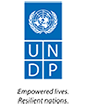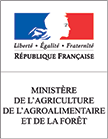The landscape approach refers to a combined geographical and socio-economic approach to managing land, water, and forest resources, which together form the foundation for meeting the goals of food security and inclusive green growth. It offers a different take on land-use planning by connecting protected areas, forest, woodlands, agro-silvopastoral lands, croplands, and irrigated agricultural lands.
The approach requires long-term collaboration among land managers and stakeholders to achieve the multiple wins of increased productivity, increased adaptation, increased GHG mitigation, increased peace and security, and decreased migration-related pressure on resources.
Proposed key outcomes of this session include:
- Positioning the landscape approach as a key tool for poverty reduction and for managing rural-to-urban migration.
- Mainstreaming the landscape approach as one that allows the whole intervention to be greater than the sum of the individual sectoral interventions.
- Building a bridge between Latin America and Africa on sharing experiences of landscape interventions leading to the 20X20 Initiative in Latin America and the 30X30X30 Resilient Landscapes Initiative in Africa and possibly a new one in Asia.
- Building partnership with the private sector for sustainable landscapes.
The session includes experts in landscape management from countries and international organizations attending the Global Landscapes Forum. They will share key concepts and gather feedback, making use of existing knowledge and identifying research gaps. It will use a panel discussion format with a moderator to guide the exchange between speakers and the audience.





































